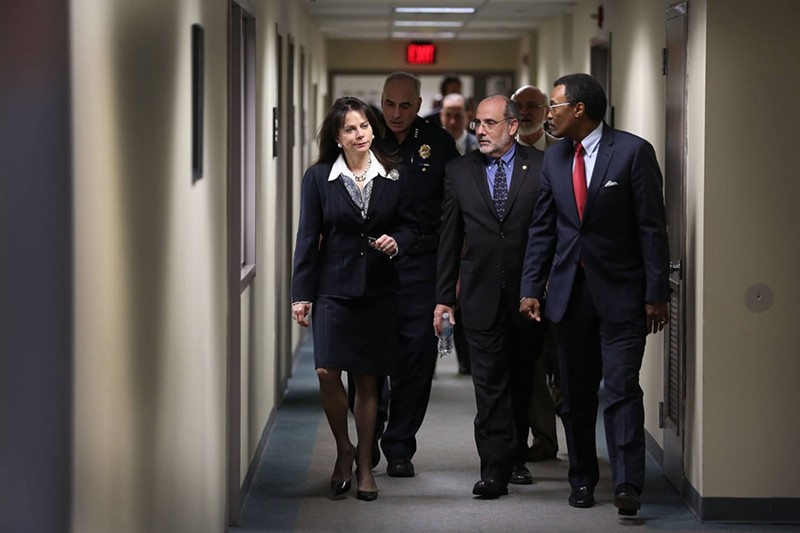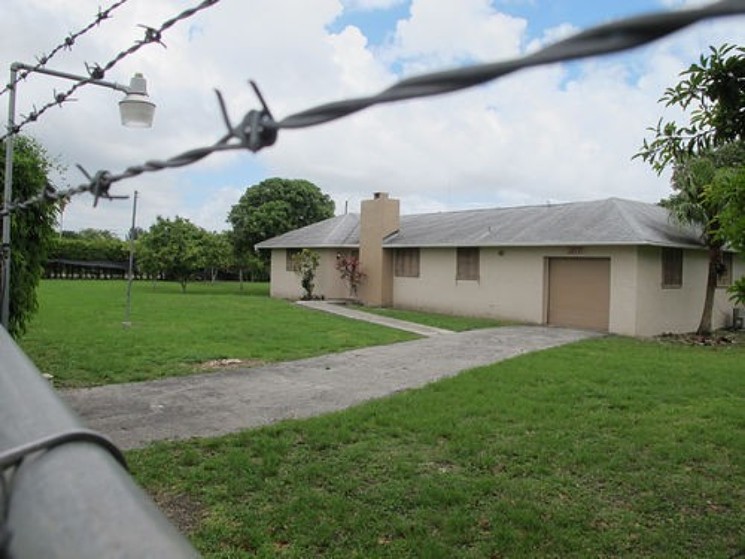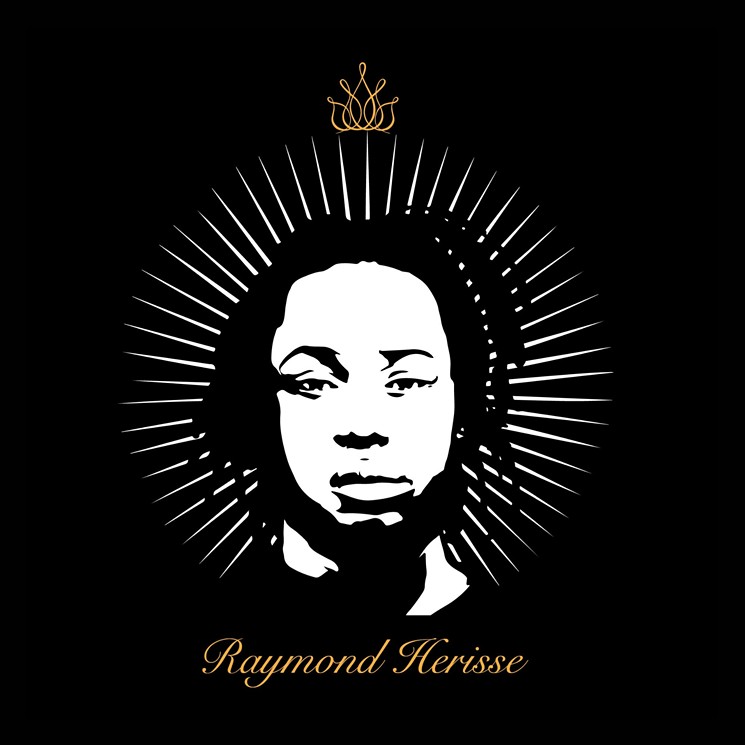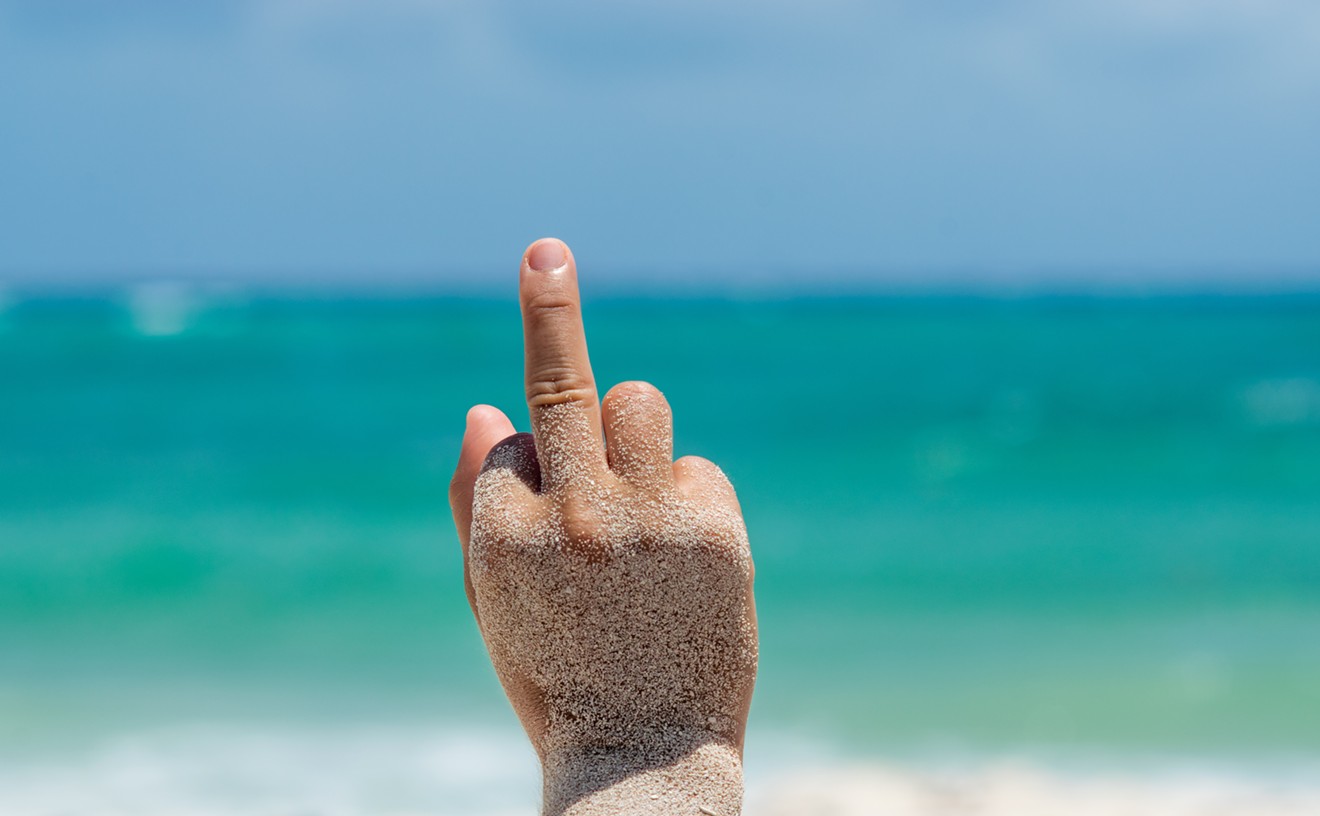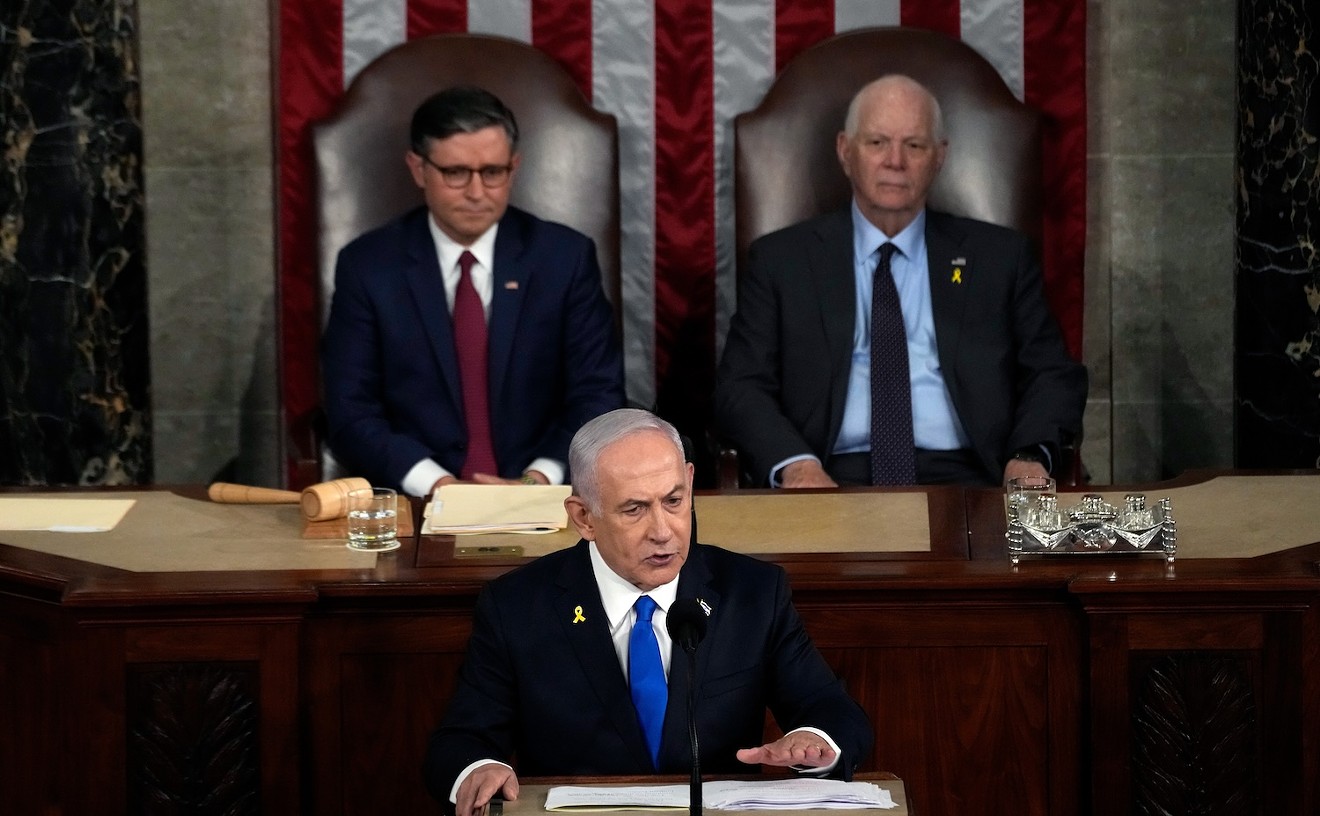A heated race is nearing the finish line in what Miami documentarian and activist Billy Corben calls "the most consequential election in our history."
"I don't mean the presidential election, although that is, too," Corben says. "I think the elections for local prosecutor are the most important elections that we can participate in."
After 27 years in office, Miami-Dade State Attorney Katherine Fernandez Rundle is up for re-election on Tuesday, August 18. Her opponent is Melba Pearson, a former prosecutor in Rundle's office who resigned from her post as Florida's deputy director for the American Civil Liberties Union of Florida to run against her former boss.
Rundle and Pearson are both Democrats. Because no Republican candidate is challenging them, the August 18 election is open to voters of all political persuasions, and the result will determine Miami-Dade's next state attorney.
Rundle was a protégé of the late Janet Reno. Upon leaving Miami in 1993 to serve as U.S. Attorney General under then-President Bill Clinton, Reno tapped Rundle to succeed her as Florida's first Cuban-American state attorney.
At the time, local media described Rundle as a social activist who just so happened to be a prosecutor. Now, as she looks to secure a third decade in power, her opponent, Pearson, has branded herself as a progressive alternative who can bring aggressive criminal-justice reform to Miami-Dade County.
As the nation roils with protests calling for greater police accountability, Rundle's most glaring vulnerability appears to be the historical absence of prosecutions against law enforcement officials accused of brutalizing or killing civilians: In 27 years, Rundle's office has not charged a single officer for an on-duty killing.
Rundle points to limitations in the law, which gives police officers broad leeway to exercise deadly force. But critics of the state attorney, including Corben, point out that she also fails to pursue lesser charges, such as culpable negligence or perjury.
"When she says, 'I'm hamstrung by the laws in Florida,' that's a half-truth," Corben says. "I think even if you're grading by the Miami-Dade public schools' curve, 50 percent is still an F."
In a matter of days, voters will make clear whether they accept Rundle's explanations or whether they believe it's time for a new approach. In the meantime, here are six of the most controversial cases that mark Rundle's tenure as Miami-Dade state attorney.
Darren Rainey
Fifty-year-old Darren Rainey was serving a two-year sentence for cocaine possession when he collapsed on the floor of a prison shower and took his last breaths. It would take years for his family to learn the truth about what happened.
Thanks to an investigation by the Miami Herald's Julie K. Brown, details about Rainey's grisly death began to trickle out to the public in 2014. Brown tracked down an inmate at the Dade Correctional Institution who reported that Rainey, who lived with schizophrenia, had been thrown in the shower as punishment for defecating in his cell. According to prison sources, the enclosed shower stall, which could only be operated from the outside, had been rigged to reach searing-hot temperatures and was sometimes used to punish inmates.
Reports show that correctional officer Roland Clarke placed Rainey in the shower at 7:38 p.m. on the night of June 23, 2012. By 9:30, Rainey was dead. One fellow prisoner reported seeing "his burnt dead... naked body" carried away on a stretcher. Another inmate was forced to clean the shower, which contained large chunks of Rainey's skin.
Graphic photos of Rainey's body showed pink tissue exposed where his brown skin had peeled away. Nevertheless, Dr. Emma Lew, the county's deputy chief medical examiner, ruled that Rainey had not been burned in the shower; her report called the condition "skin slippage." (Other forensic experts who have reviewed the autopsy photos disagree.) Lew made the controversial determination that Rainey's death was accidental, indicating that he died from "schizophrenia, atherosclerotic heart disease and confinement inside the shower room."
The Miami-Dade State Attorney's Office announced on a Friday afternoon in March 2017 that it would not be arresting the correctional officers involved. Rundle claimed at the time that the medical examiner's determination and inmate testimony deemed inconsistent made it impossible to file criminal charges of murder or manslaughter.
In the lead-up to this year's election, Rundle has repeated those explanations when questioned about her failure to bring charges in the Rainey case. In a recent Facebook Live interview with Luther Campbell, she said she found the death disturbing but would not make a different decision if given the chance for a do-over.
"I know that it's painful when people look at that and they feel like Mr. Rainey — I've seen the signs — didn't get justice...and I'm sorry that there's that feeling, but really there was nothing more I could do," she said.
Pearson, Rundle's opponent, has said she would have pursued charges of manslaughter or culpable negligence given the same evidence.
Jesús "Jesse" Menocal, Jr.
In June 2015, a 17-year-old came forward with disturbing allegations of sexual abuse by a Hialeah police officer.
The teen said Sgt. Jesús "Jesse" Menocal Jr., then a SWAT officer, drove her to a Hialeah police station after a traffic stop and escorted her to a room with no cameras. There, he forced her to strip to her underwear, touched his penis over his pants, and demanded sex, according to a lawsuit the victim filed against Menocal last year.
The lawsuit claims the City of Hialeah knew Menocal was abusing his position to prey on women and girls but did nothing to discipline him. A Miami Herald investigation found that internal-affairs investigators at the Hialeah Police Department gathered evidence that Menocal had committed "unlawful sexual activity" against four women and minors.
When investigators handed over their findings to Chief Sergio Velasquez and the State Attorney's Office, neither acted to discipline Menocal, the Herald reported. Rundle's office declined to file charges against Menocal, arguing that the accusers weren't credible and that the case wouldn't hold up in court.
But the Herald found that the assistant state attorney assigned to the case didn't even interview three of the four accusers. Instead, the prosecutor, Johnette Hardiman, wrote them off as gang members and a "bipolar chronic runaway."
The FBI arrested Menocal in December 2019, and a federal grand jury indicted him on two felony counts of violating women's civil rights. (Four women and girls accused Menocal of sexual abuse. A fifth woman came forward after his arrest.)
In a press release issued after Menocal's arrest, Rundle said the information her office provided to the U.S. Department of Justice (DOJ) helped lead to the civil-rights charges against him, but that her own office didn't have enough evidence to file a criminal case.
"This was a very challenging fact scenario when we first reviewed it," Rundle said in the statement. "At the time, we did not have sufficient evidence to ethically file state sexual assault charges. However, we did not give up on this matter. Recognizing that federal civil rights charges might be viable, we referred this matter to DOJ for further investigation in 2016. I commend the FBI for successfully gathering enough evidence to make these civil rights charges possible."
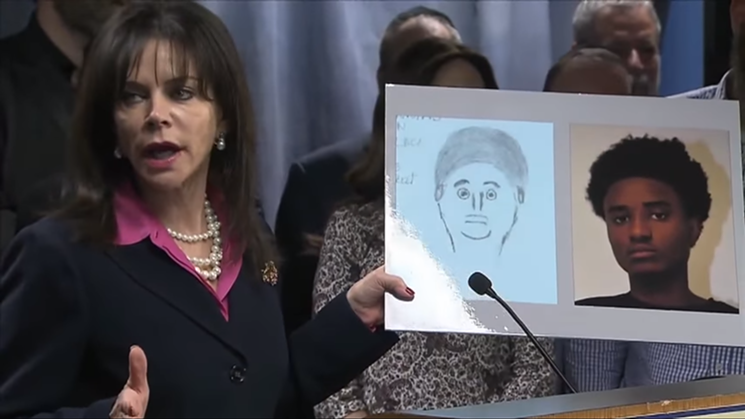
Deandre Charles
In late 2015, Miami-Dade police arrested 15-year-old Deandre Charles for the murder of Joseph Raksin. In a case that garnered international attention, Raksin, a rabbi from New York City, was shot and killed in a robbery-gone-wrong while visiting Miami in August 2014.
Charles' family said all along that he was at home that day, far from the scene of the crime. Nevertheless, Rundle's office prosecuted the teen for killing the rabbi. The evidence included a drawing that some called the "worst witness sketch in history."
At a press conference after the arrest, Rundle held up the sketch next to a photo of Charles and touted it as proof of the teen's culpability.
"This is a prime example of how prosecutors and police can work together," Rundle declared, later adding that Raksin "didn't have any money on him," so Charles, who was 14 years old at the time of the crime, "shot and killed him."
In 2017, the State Attorney's office dropped the charges against Charles and released him from custody — 333 days after he was jailed.
"Unfortunately, at this time, the trial team does not believe it can prove the defendant's guilt beyond a reasonable doubt," the State Attorney's Office said in a statement. "At the time of the indictment, the trial team was unaware that the firearm used in this murder had been used 30 hours prior in an armed robbery" not committed by Charles.
It turns out that a confidential informant and an anonymous tipster reported that a group of young men involved in some robberies also were involved in the rabbi's killing. The robbers were questioned and one admitted that he and the others identified by the tipster were in the area where Raksin was shot. Cell-phone data that supposedly proved Charles was there was misleading because someone else had his phone.
Charles' family sued in January 2019, claiming the State Attorney's Office had evidence all along that would have exonerated him. The civil case was dismissed ten months later for lack of cause.
"While the Court recognizes the tragedy of Charles's nearly yearlong detention prior to the charges against him being dropped, it nonetheless cannot find that his allegations amount to viable claims against either Defendant in this case," the judge wrote in an order.
2011 Redland stash house shooting
Five would-be robbers drove up to what they were told was a marijuana stash house for what was supposed to be a simple theft. Instead, they were mowed down in a hail of bullets fired by police snipers lying in wait, leaving four of them dead.
What sounds like the plot of a Hollywood action movie was an actual sting operation by Miami-Dade police in 2011 in the Redland. Under instructions from the police department, a confidential informant led the crew to the house, promising they'd find $60,000 worth of weed. But when the group arrived, officers began shooting. Even the informant was gunned down. Police later admitted there was no evidence any of the "bad guys" fired a single shot.
After three years of public outcry, the State Attorney's Office did not charge any of the 11 officers involved in the shooting, despite finding that only one of the killings was legally justified.
Rundle's office found the entire operation and its aftermath highly suspicious.
"There are a number of unusual, counter-intuitive, suspicious, and/or disturbing factors that make these some of the most unsettling and troublesome decisions we have ever made in a police involved shooting," prosecutors concluded in their report.
Nevertheless, no officers were charged because, according to the SAO, there wasn't sufficient evidence to move forward with a case.
What happened in the Redland wasn't the only bungled sting Miami-Dade cops pulled. A 2012 New Times investigation revealed that police pulled two other nearly identical operations within a five-year period in which they shot every suspect they lured into traps, including their informants. No officer involved in the shootings was ever charged.
Raymond Herisse
Raymond Herisse died in a predawn fusillade on South Beach during Memorial Day weekend nine years ago. Miami Beach and Hialeah police unleashed 116 bullets on Herisse's car during a chase, 16 of which struck him.
A Hialeah police officer had pulled over Herisse at 16th Street and Collins Avenue around 4 a.m. on May 30, 2011, for driving erratically and burning out the tires on the borrowed car he was driving. The officer told Herisse to turn off the engine and get out of the car. Herisse hit the gas and sped south on Collins, knocking over the officer, hitting several cars, and driving on sidewalks and against traffic, according to police accounts. The Hialeah officer shot at Herisse as he drove away.
When Herisse stopped at 13th Street and Collins, police surrounded him and ordered him to get out of the car. When he didn't, a dozen officers opened fire, killing Herisse and injuring four bystanders.
The Miami Herald reported that hours after the shooting, then-Miami Beach Police Chief Carlos Noriega said that "unconfirmed witness reports" indicated Herisse may have fired a gun out of his car when police tried to stop him. Three days later, when police found a gun wrapped in a towel underneath the driver's seat of the car, Noriega called the find "great news." Lab tests later determined that Herisse never fired a weapon that morning.
After a four-year investigation, Rundle's office announced in March 2015 that the officers involved in the shooting would not be charged. Knocking over a police officer with his car and then driving away made Herisse a "fleeing felon," thereby justifying the use of deadly force, according to prosecutors.
"In each of the different shooting incidents, the evidence points to the conclusion that the officers did not commit a criminal act and were justified in the use of the deadly force they reasonably believed to be necessary to defend themselves from bodily harm or using while attempting to arrest Mr. Herisse, who was a fleeing [sic] from the commission of multiple felonies," Rundle said in a summary.
Israel "Reefa" Hernandez
Israel "Reefa" Hernandez was spray-painting the side of an abandoned McDonald's in North Beach when Miami Beach police arrived on August 6, 2013. The 18-year-old skateboarder took off, and the cops chased him down; Officer Jorge Mercado ultimately confronted Hernandez and fired a Taser at his chest. According to police, Hernandez "displayed signs of medical duress" and was pronounced dead at Mount Sinai hospital less than an hour later.
Seven months later, the medical examiner's office found that Hernandez died of heart failure caused by "energy device discharge." Nevertheless, the death was ruled accidental. Citing the medical examiner's report, Rundle's office announced in July 2015 that it would not press charges against Mercado for his role in the teen's death. The state attorney further explained that since using a Taser generally does not result in death, the officer could not have expected the probe would kill Hernandez.
"Under the law as applied to all of the facts, we must, therefore, conclude that Officer Mercado's actions as they relate to the single six-second discharge of his Taser at Mr. Israel Hernandez-Llach was legally justified," Rundle said in a statement.
In the years since, friends and loved ones of Hernandez have used the "Justice for Israel Hernandez 'Reefa'" Facebook page to raise awareness of other cases and to call for Rundle's ouster.
"Her local notoriety has become a national embarrassment as Americans across the country get a glimpse of the legal thuggery and callous indifference that many Miamians on the street have been subjected to since they were born: a public official more interested in the status and power of being an official than the obligation to justly serve the public; a disconnected and polarizing prosecutor whose record amply documents a shamelessly persistent preference to help killer cops evade accountability for killing our family and friends," one post says.

